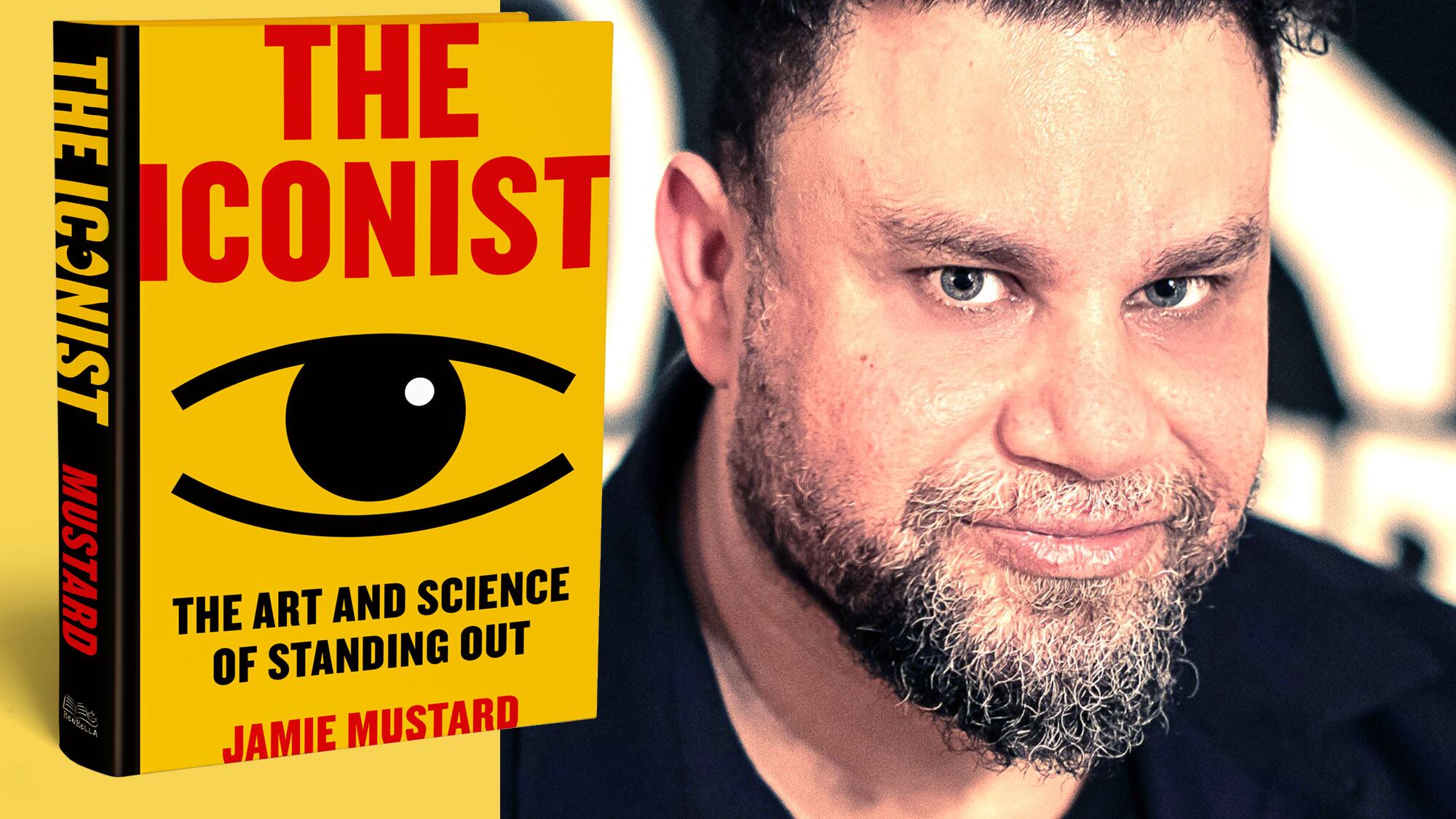Bands drop thousands of dollars on publicity campaigns in hopes of getting picked up by blogs. Writers go to countless seminars and networking events, desperate for a publishing deal. But according to Jamie Mustard, standing out in today's hypersaturated media landscape isn't a question of independent wealth or industry connections—it's a matter of appealing to humans' primal instincts.
In his new book, The Iconist: The Art and Science of Standing Out (BenBella Books, 229 pages, $22), Mustard lays out the science of grabbing attention. A veteran of corporate PR, the Portland author and radio host has years of experience distilling complicated ideas into simple terms. After picking up on patterns in the most successful art across a broad spectrum of mediums—from music to architecture—Mustard developed a theory that simple repetition is the way to break through the digital static.
WW talked to Mustard about media overload, changing definitions of artistic success, and how to get people to listen to your indie-rock band.
WW: Your book is based on the idea of "blocks." Can you tell me what that means in this context?
Jamie Mustard: In music, a block would be a dominant, repetitive, nursery rhyme-type melody, otherwise known as a hook, over a more complicated arrangement. Beethoven and Mozart use this in the exact same way that Rage Against the Machine and Radiohead do. In art, or visual design, a block is an instantly recognizable central image that takes up most of the page that you recognize and understand before you have a chance to think. Almost everyone would recognize a Warhol and a Van Gogh—and both Warhol and Van Gogh paint things that take up the whole canvas that you instantly recognize.
What I put forth is that the reason we would stop and pay attention to a painting, or listen to a song, or stare at a résumé, or listen to a speech, is based on an unchanging set of primal laws that stay the same from medium to medium. There's so much media overload now, we're becoming more and more invisible as people. I think it's a psychological stressor that nobody talks about.
Does understanding and utilizing blocks make a work of art better or worse?
I'm not trying to say that makes it better or worse. What I'm trying to do is get people to understand that, if you want to be part of the bigger collective, you need to understand these rules. Success is not all about being Portugal the Man. Success can be just creating great art. Whatever they're going to be, I just want people to be able to do it with intention, and not wonder, if they're not creating access points to their work, why they're not getting the traction they want.
It seems to me a lot of what makes a particular piece of art popular is powerful people calling it "good." What about people who don't have access to the distribution power of, say, the music industry?
You can build a viable tribe without the music industry in a way you couldn't 30 years ago. I think anyone who wants to be popular, if they were motivated enough to make a living and they used these rules, they could make a living as an artist. I'm not claiming I can turn anyone into Katy Perry or Miley Cyrus, nor do I want to. But I do think there are a lot of levels below that which are viable, that reward people and make them feel seen, that make them feel heard and even make them financially sustainable.
What if every artist read your book and started producing art based on blocks? Would their work then again get lost in the deluge?
If everybody does it, it does work, because a block is a thing that's unique to you that becomes instantly recognizable in its repetition. The world's like a big information superhighway with billions of drivers, and drivers get off on the exit they're looking for. So if you put up a repetitive thing they can instantly understand in front of them, they'll get off at your exit. And if everybody does it, it works. We have billions of road signs in the world and they all work. You can have a very big tribe if you have a repetitive style, you use melody for people to access your work, and you create a signal that's associated with you.
SEE IT: Jamie Mustard reads from The Iconist at Annie Bloom's Books, 7834 SW Capitol Highway, annieblooms.com, on Wednesday, Oct. 16. 7 pm.
